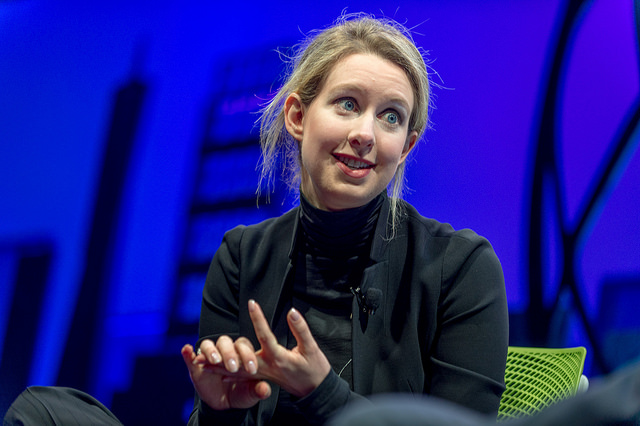20 December 2015 | Articles, Articles 2015, Communications | By Christophe Lachnitt
A Journalist’s Mistake Can Sometimes Generate A Valuable Information…
… if they recognize their misstep and draw the consequences from it.
Founded by Elizabeth Holmes, Theranos is one of Silicon Valley’s hottest and most secretive startups. Valued at $9 billion, it claims that it can conduct blood tests without the use of a syringe.
Two months ago, the Wall Street Journal stated that Theranos’s culture of secrecy hides considerable technological and operational difficulties. It happens that, sixteen months earlier, Robert Parloff, senior editor at FORTUNE, had written a cover story on Elizabeth Holmes.
Parloff has just published a new article that is eloquently titled, “How Theranos Misled Me.” He explains that one of the main assertions he made in the cover story – “Theranos currently offers 200—and is ramping up to offer more than 1000—of the most commonly ordered blood diagnostic tests, all without the need of a syringe” – was in fact “whopping false.”
He recounts that he began to realize his mistake when he read the Wall Street Journal piece. He resumed his investigation and came to the following conclusion:
“As much as I’d like to say that Holmes lied to me, I don’t think she did. I do believe I was misled—intentionally—but I was also culpable, in that I failed to probe certain exasperatingly opaque answers that I repeatedly received.“

Elizabeth Holmes – (CC) FORTUNE Global Forum
It is absolutely unusual for a journalist to so openly and honestly acknowledge a mistake they made in an article.
But beyond that, I draw two lessons from this episode:
- First, a journalist’s mistake can sometimes generate a valuable information if they recognize their misstep and draw the consequences from it, as Robert Parloff did. In this case, his admission helps us understand that Theranos certainly misinforms its stakeholders on purpose and that its dishonesty is neither new nor accidental.
- Second, as the financial – and therefore editorial – resources of most of the news media groups are decreasing, it is always more important that the latter don’t operate in silos and learn from each other’s work. Robert Parloff has studied the Wall Street Journal‘s investigation and not hesitated to explain how it helped him get to the bottom of the Theranos case. Coopetition has a future in the world of journalism too.


